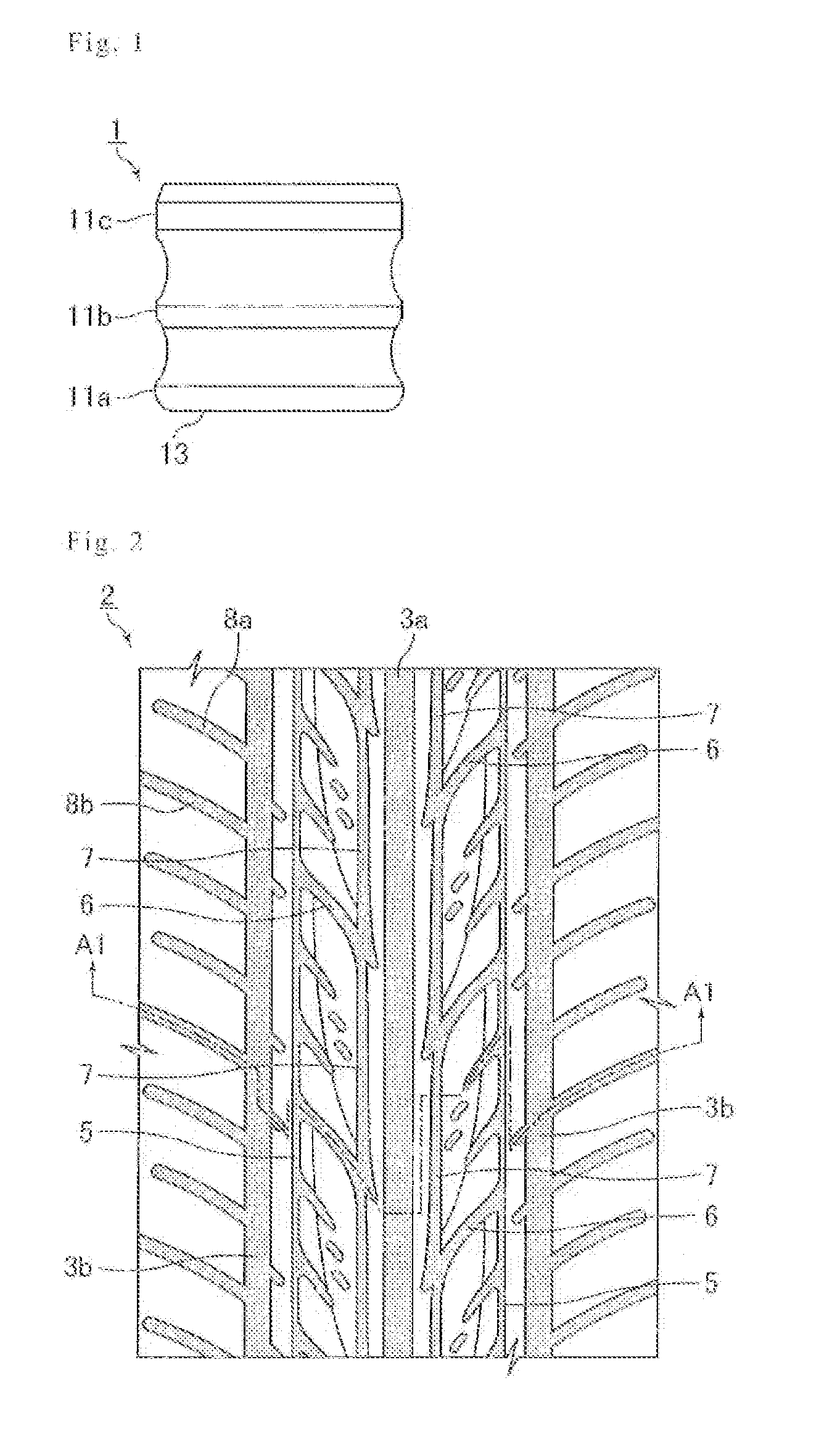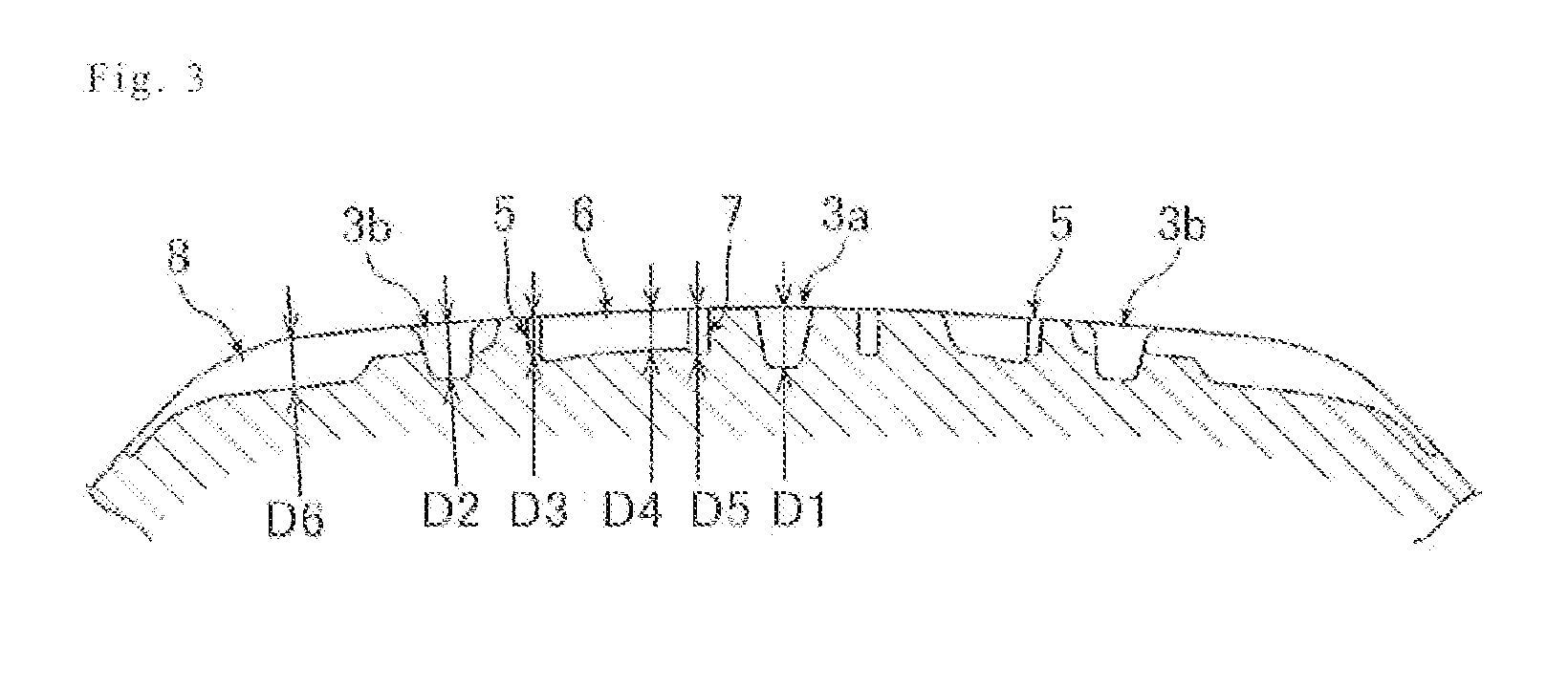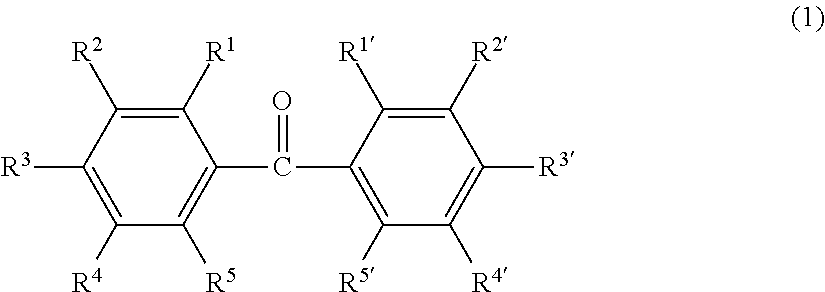Surface modification method and surface-modified elastic body
a technology of elastic body and surface modification, which is applied in the field of surface modification method and surface-modified elastic body, can solve the problems of silicone oil negatively affecting recent marketed bio-preparations, inability to accurately inject silicone oil, and inability to achieve the effect of enhancing the sliding properties of the sliding surface, less pressure loss, and improving the noticeability of road signs or signs
- Summary
- Abstract
- Description
- Claims
- Application Information
AI Technical Summary
Benefits of technology
Problems solved by technology
Method used
Image
Examples
example 1
[0086]A chlorobutyl rubber (degree of unsaturation: 1 to 2%) having isoprene units was cross-linked by triazine to give a rubber vulcanizate (vulcanized at 180° C. for 10 minutes). The rubber vulcanizate was immersed in benzophenone (3 wt %) in acetone so that benzophenone was adsorbed onto the surface of the rubber vulcanizate. Then, the rubber vulcanizate was taken out and dried. Thereafter, the surface of the rubber vulcanizate was irradiated using an LED light source with a wavelength of 365 nm for 30 minutes to fix benzophenone. Then, the surface was washed in acetone to remove unreacted benzophenone.
[0087]The dried rubber vulcanizate was immersed in an aqueous acrylic acid solution in a glass reaction container, and was irradiated with ultraviolet rays using an LED light source with a wavelength of 365 nm for 30 minutes to cause radical polymerization so that polymer chains were grown on the rubber surface. In this manner, a product on which polymer chains were formed was obta...
example 2
[0090]A surface-modified elastic body was prepared in the same manner as in Example 1, except that the product on which polymer chains were formed was immersed in 1-hexadecanol in acetone instead of the 1-hexanol in acetone.
example 3
[0091]A surface-modified elastic body was prepared in the same manner as in Example 1, except that the product on which polymer chains were formed was immersed in 1-docosanol in dichloromethane instead of the 1-hexanol in acetone.
PUM
| Property | Measurement | Unit |
|---|---|---|
| length | aaaaa | aaaaa |
| temperature | aaaaa | aaaaa |
| temperature | aaaaa | aaaaa |
Abstract
Description
Claims
Application Information
 Login to View More
Login to View More - R&D
- Intellectual Property
- Life Sciences
- Materials
- Tech Scout
- Unparalleled Data Quality
- Higher Quality Content
- 60% Fewer Hallucinations
Browse by: Latest US Patents, China's latest patents, Technical Efficacy Thesaurus, Application Domain, Technology Topic, Popular Technical Reports.
© 2025 PatSnap. All rights reserved.Legal|Privacy policy|Modern Slavery Act Transparency Statement|Sitemap|About US| Contact US: help@patsnap.com



